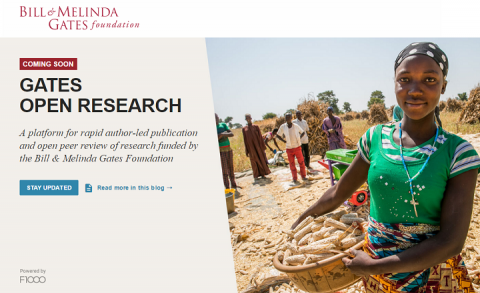Foreign aid: how can we make it go further?
| 25 September, 2017 | Claire Turner and Kalipso Chalkidou |
|

|
Claire Turner and Kalipso Chalkidou from Global Health and Development Group introduce iDSI, the International Decision Support Initiative, a gateway to support countries to make better decisions about how to get the most from every dollar they spend on healthcare.

There is growing public skepticism of the return-on-investment of aid. There is a lack of understanding of how aid money is spent, with the World Health Organisation estimating that around 40% of spending in healthcare is wasted. Foreign aid donations are expected to fall and as such, inefficiencies in aid spending need to be addressed.
Evidence is key
We can combat such skepticism with a loud and clear commitment by the US and UK administrations to ensure that foreign aid is good value for those giving and for those receiving. Emphasis on analysis, evidence and performance will mean that money spent on aid is money well spent.
A serious and sustained institutionalised effort is needed to analyse and publish every significant aid programme’s return-on-investment.

A potential solution
Our recent publication on F1000Research proposes the establishment of NIDE: a National Institute for Development Effectiveness, to play this role on behalf of the UK.
Modelled along the lines of the National Institute for Health and Care Excellence (NICE), NIDE would be an independent public body accountable to the Government, who would work to reduce low and middle income countries’ (LMICs ) dependence on high-income countries for healthcare aid. NICE produces evidence-based guidance and advice and develops quality standard and performance metrics for the NHS.
NIDE would provide similar services on a global level on behalf of agencies such as: the UK’s Department for International Development (DFID), Global Fund for AIDS, TB and Malaria, UNITAID and Gavi. We suggest that governments should “not invest more than £10m of bilateral aid in any programme that has not been assessed by NIDE”.
Can it be done?
Setting up a NICE-for-aid would hardly be an easy task, but it could build on the work of the International Decision Support Initiative (iDSI) based at Imperial College London funded by the Bill & Melinda Gates Foundation, Rockefeller and DFID. This initiative uses clinical and cost-effective evidence to support low and middle income countries in making better decisions with their healthcare budgets.
In this same way, NIDE should use economic and epidemiological analyses as tools to inform development funders on appropriate co-financing levels, and more importantly what this co-financing should be spent on. The goal is to maximise return-on-investment in the long run, whether this be improved population health, improved workforce productivity, and so on. Helping countries build sustainable capacity to spend their own money in a more effective way, as they transition away from aid, is critical to this endeavour.

The alternative option
What is the alternative? The risk is that the British (and possibly USA’s) aid spending becomes increasingly vulnerable to sceptics, leading to further budget cuts. The “business as usual” approach would rule: serving short term objectives rather than maximising long term impact on reducing poverty and jeopardising progress toward universal health coverage and the Sustainable Development Goals.
Without the work a NIDE could do, countries transitioning away from aid will become more at risk of regressing back to being aid-dependent states. The local intelligent capacity for making good decisions will remain unbuilt and the world risks losing hard won gains towards sustainable global development.
The UK can lead the way, starting with its own investment and building on the firm principle that we seek to maximise the impact of our aid money on the health and welfare of the people we choose to help.
International Decision Support Initiative
iDSI is an international network of health, policy and economics expertise. We use our technical knowledge of health economics and stakeholder management to help low and middle income countries transition towards more effective healthcare systems.
Our experience working with governments, funders, industry and clinicians allows us to produce a variety of knowledge outputs; from methodological insights, tools and guides for practitioners, to country case studies. We are pleased to announce that we are now collaborating with F1000 to host these outputs on the iDSI Gateway; which provides an open, accessible platform for sharing this knowledge globally.
The launch of our Gateway coincides with the launch of our new and improved website where you can keep up to date with iDSI activities and where we will feature key resources from the iDSI Gateway.
Take a look at the full NIDE article and our other knowledge outputs on the iDSI Gateway here.

|




User comments must be in English, comprehensible and relevant to the post under discussion. We reserve the right to remove any comments that we consider to be inappropriate, offensive or otherwise in breach of the User Comment Terms and Conditions. Commenters must not use a comment for personal attacks.
Click here to post comment and indicate that you accept the Commenting Terms and Conditions.